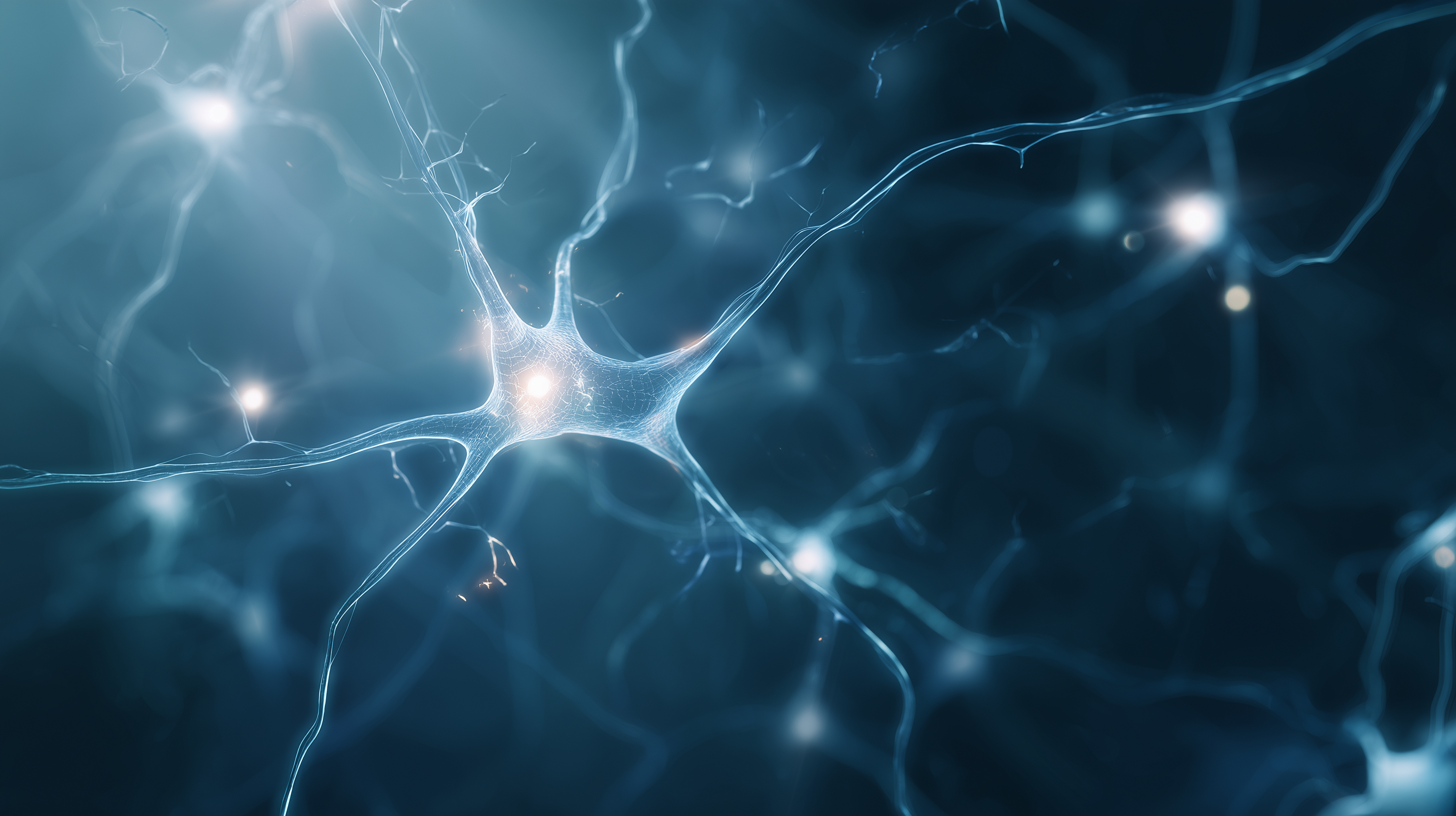Magnesium as an underestimated regulator in the nervous system
Magnesium is known to many as the "muscle mineral"—a substance associated with movement, energy, and muscle relaxation. But beyond these well-known functions, magnesium plays a crucial role in the nervous system .
As a versatile cofactor in enzymatic reactions, magnesium is closely linked to the electrical stability, signal transduction, and stress regulation of neuronal systems. It influences how nerve cells communicate, process stimuli, and adapt to stressful situations.
The aim of this article is to scientifically examine the neurobiological functions of magnesium – without making any promises of healing or recommendations for its use, but rather focusing on the biochemical principles that explain its importance for neuronal balance.
The neurobiological significance of magnesium
Magnesium as a cofactor in the nervous system
Magnesium is involved in over 300 enzymatic reactions , many of which occur directly in the brain and peripheral nervous system . These reactions affect both energy metabolism and electrical signal transmission .
A key example is ATP binding : Biologically active ATP exists almost exclusively as a magnesium-ATP complex . This allows energy to be stably bound within cells and transferred to enzymes in a targeted manner. Without magnesium, neuronal energy transfer would not be possible.
In addition, magnesium contributes to the activation of enzymes involved in DNA and protein synthesis , in impulse conduction , and in the maintenance of cell membrane structure . These functions make magnesium a key element in neuronal stability .
Magnesium and neuronal excitability
One of the most important biophysical functions of magnesium is the regulation of neuronal excitability . Magnesium acts as a natural calcium antagonist : it blocks certain calcium channels, thus preventing an excessive flood of ions into the nerve cell.
In doing so, it stabilizes the resting potential of the cell membrane and modulates the electrical activity of neurons. This regulation is crucial for the controlled transmission of stimuli and for preventing overexcitation or instability in the nervous system .
In this context, magnesium supports the fine tuning of signal transmission between nerve cells and contributes to the balance between excitation and inhibition in the central nervous system.
Magnesium and neurotransmission
Interaction with receptors
Magnesium is a significant modulator of the NMDA receptor , one of the most important glutamate receptor systems in the brain. The NMDA receptor is essential for synaptic plasticity —the adaptability of synapses that enables learning and memory.
Magnesium blocks the NMDA channel during resting phases, thereby preventing overstimulation by glutamate , the most important excitatory neurotransmitter. Only when depolarization is sufficient is magnesium expelled from the channel, allowing the receptor to become active.
This mechanism acts as a biochemical protective filter that maintains the balance between activation and over-excitation – a key factor for neuronal health and cognitive stability.
Influence on neurotransmitter production
Magnesium also plays a role in the synthesis and regulation of neurotransmitters . It acts as a cofactor in enzymes that promote the formation of:
-
Serotonin (involved in mood and sleep),
-
Dopamine (important for motivation and motor control),
-
and GABA ( γ-aminobutyric acid , central inhibitory neurotransmitter)
support.
Through this indirect involvement, magnesium influences neuronal signal processing and contributes to chemical balance in the brain . Scientific studies show that a stable magnesium status is closely linked to the regulation of these neurotransmitter systems.
Relationship between magnesium and stress physiology
The connection between magnesium and cortisol
Magnesium is closely linked to the hypothalamic-pituitary-adrenal (HPA) axis , which controls the body's stress response . This axis releases the hormone cortisol —a key factor in adaptation to stress.
Researchers assume that magnesium intervenes in the regulation of the HPA axis at several levels: It influences the signal transmission of nerve pathways that control cortisol release and has an inhibitory effect on excessive activity at the receptor level.
Studies show links between magnesium status and stress reactions , particularly with regard to the adaptability of the nervous system. These findings are currently being further investigated in stress research, but no direct efficacy claims have been derived from them.
Magnesium and neuronal recovery
In addition to its role in stress regulation, magnesium is also associated with neuronal regeneration . It influences processes that support the recovery and stabilization of nerve cells after increased activity or stress.
Physiologically, magnesium contributes to the relaxation of neuronal and muscular structures by inhibiting calcium entry into the cells and facilitating the rest phase after a stimulus transmission.
Experimental models are also being used to investigate the relationship between magnesium, sleep quality , and neuronal recovery —as part of the natural regulation of activity and rest in the nervous system.
The interaction with vitamin B6 (pyridoxal-5-phosphate)
Vitamin B6, especially in its active form pyridoxal-5-phosphate (P-5-P) , plays a synergistic role in magnesium metabolism. It facilitates the cellular utilization and binding of magnesium in enzymatic processes.
P-5-P acts as a coenzyme in reactions that enable the integration of magnesium into metabolic pathways, such as amino acid conversion and neurotransmitter synthesis .
This interaction supports energy production in nerve cells and promotes the biochemical efficiency of magnesium as a cofactor. This synergistic concept is increasingly being scientifically investigated in the context of nerve function and stress physiology .
Current research – Magnesium and neuronal health
Research on magnesium and the nervous system is a dynamic field of increasing importance. Studies examine the role of magnesium in:
-
the transmission of signals between neurons ,
-
the regulation of the HPA axis ,
-
and potential neuroprotective mechanisms in oxidative or metabolic stress.
Correlation does not imply causation . Many studies demonstrate links between magnesium status and neuronal function, but the exact mechanisms and long-term effects remain the subject of intensive research.
Future work will focus on questions of neuronal resilience , i.e. the resistance of the nervous system to stress and sensory overload, and on the molecular modulation of neurotransmitters by magnesium.
Conclusion – Balance for the nervous system
Magnesium is much more than a mineral for muscles: it is a biochemical regulator of the nervous system that links electrical stability, neurotransmission and stress adaptation.
Through its role as a cofactor , ion regulator and NMDA modulator, magnesium contributes significantly to the balance between excitation and recovery in the neuronal network.
In combination with active vitamin B6 (P-5-P), magnesium can be integrated more efficiently into enzymatic processes – a synergy that plausibly explains, on a biochemical level, why both substances are often researched together.
Scientifically speaking, magnesium is a central element of neuronal homeostasis : a molecule that ensures stability, adaptability and stress regulation – without drawing any medical conclusions from this.





